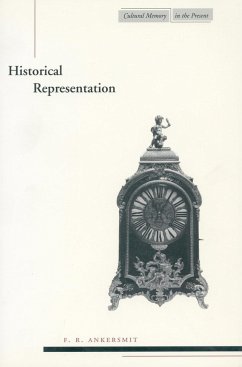Taking as its point of departure a sharp critique of Rawls's influential A Theory of Justice--which, like most Western political philosophy since the seventeenth century, considers ethics to be foundational to a proper understanding of the political--this book looks at politics from an aesthetic perspective. To achieve this, it focuses on the notion of political "representation" as the heart of parliamentary democracy, openly welcoming and embracing all the aestheticist connotations of the term. Representation will always present us with an "aesthetic gap" between the represented and the representation; it is in this aesthetic gap that legitimate political power and all political creativity originate. In a representative democracy, this aesthetic gap appears in the fact that the representative is not a mandatary but a delegate of the voter (possessing a certain autonomy with regard to the voter, much in the same way that a painting has a certain autonomy vis-à-vis what it depicts). This was made clear by Burke more than two centuries ago and has been the practice of well-functioning representative democracies to the present day. The author sees totalitarianism as the inevitable consequence of the abandonment of aestheticism. This "brokenness" of the political world of representative democracy places an aesthetic political philosophy of democracy in the tradition of Machiavelli, Montesquieu, Tocqueville, and Schumpeter, by contrast to most of contemporary political philosophy. The aesthetic view enables us to develop a new and original account of the origins and nature of democracy, one that demonstrates how the present shortcomings of democracy can best be remedied to meet the challenges of the new century.
Hinweis: Dieser Artikel kann nur an eine deutsche Lieferadresse ausgeliefert werden.
Hinweis: Dieser Artikel kann nur an eine deutsche Lieferadresse ausgeliefert werden.








